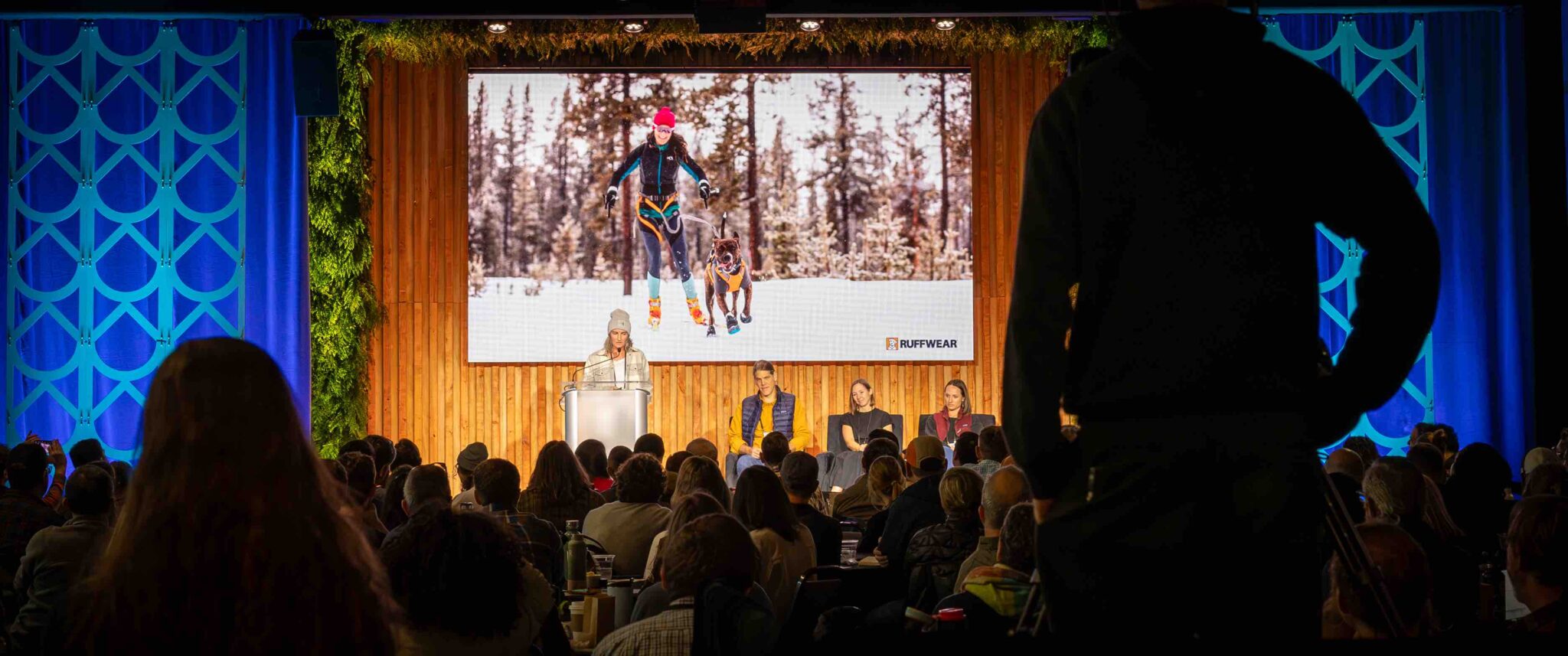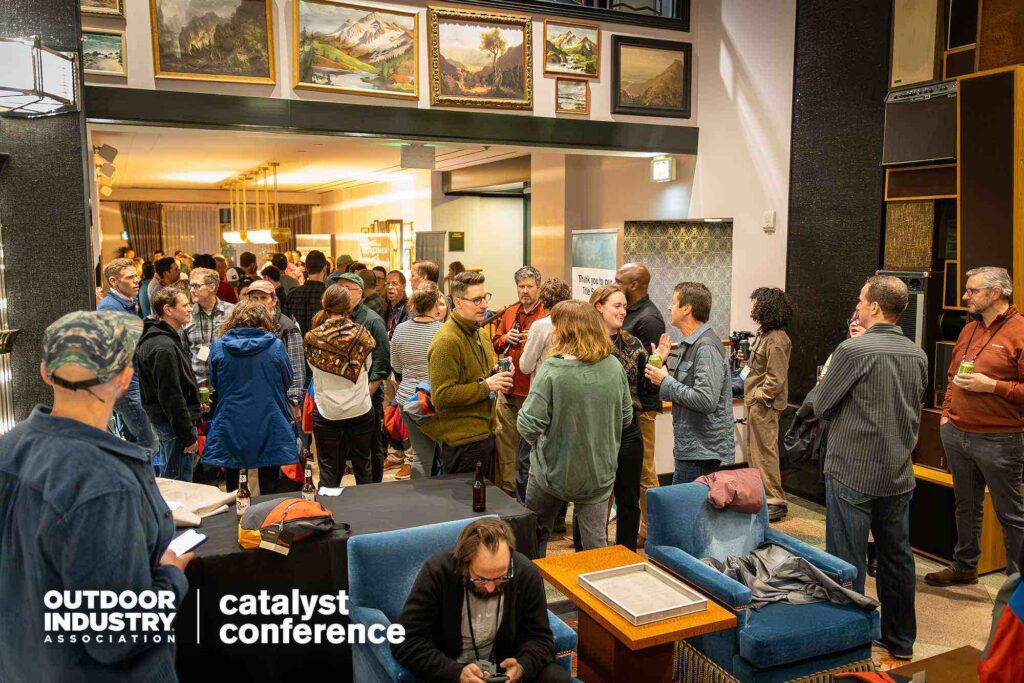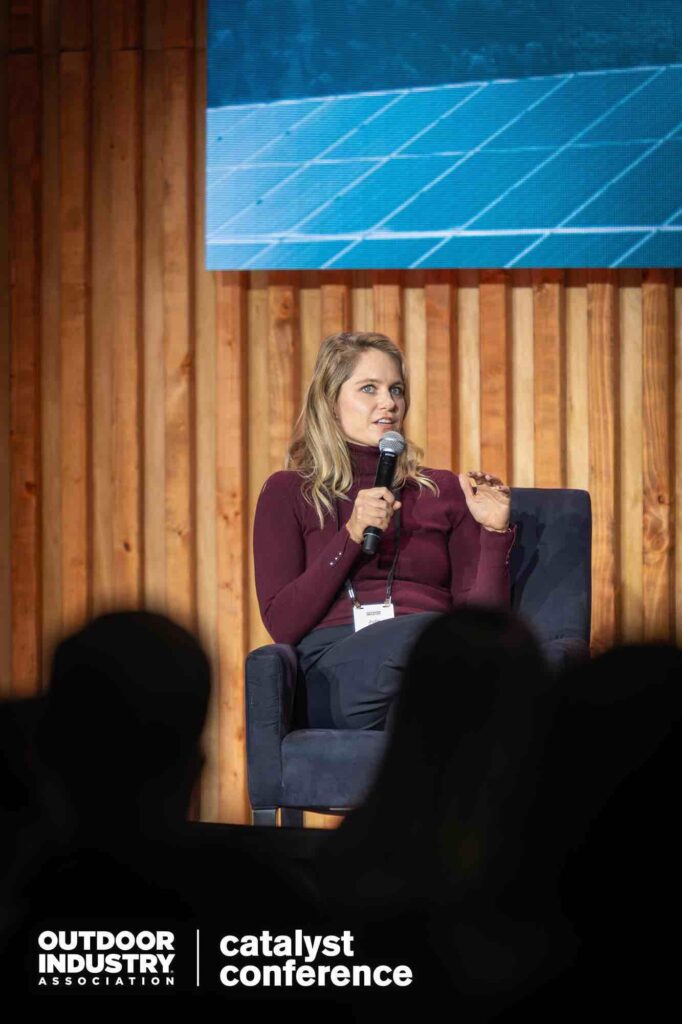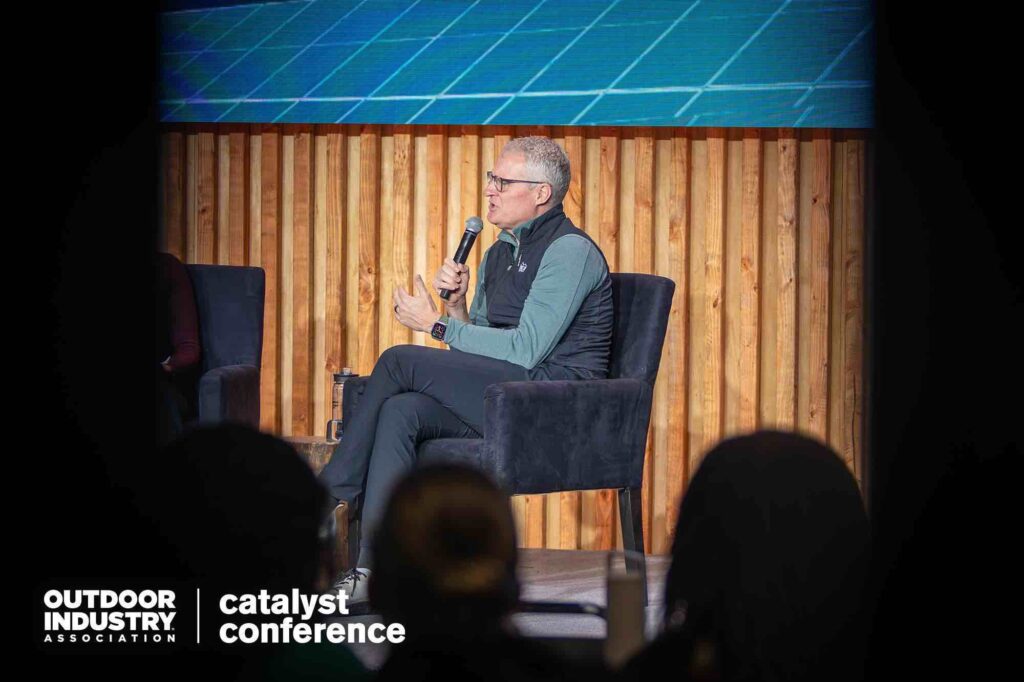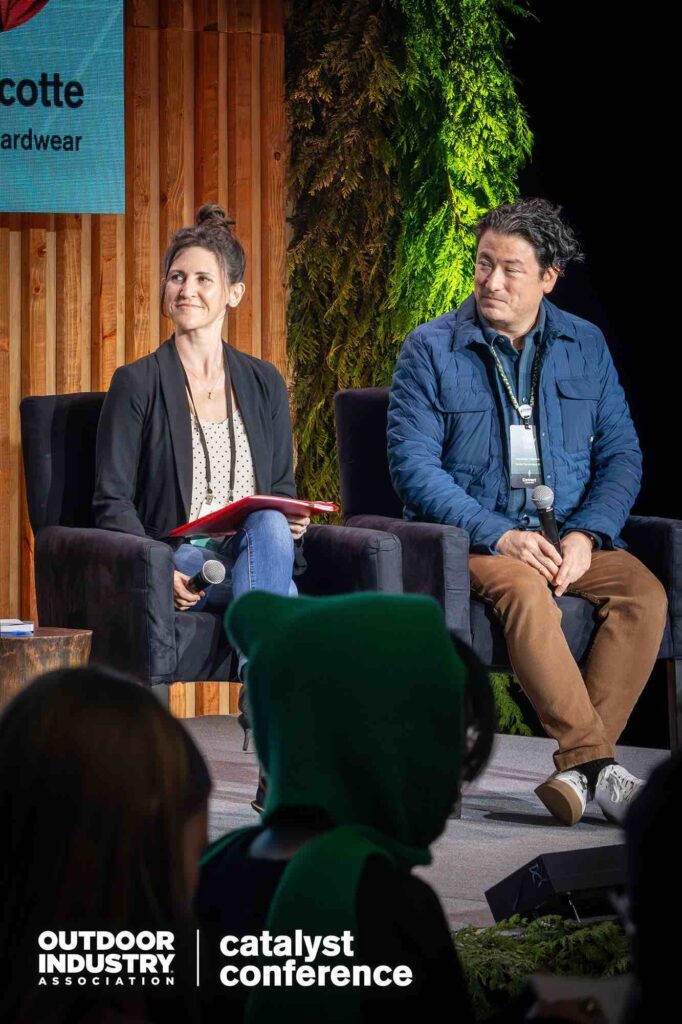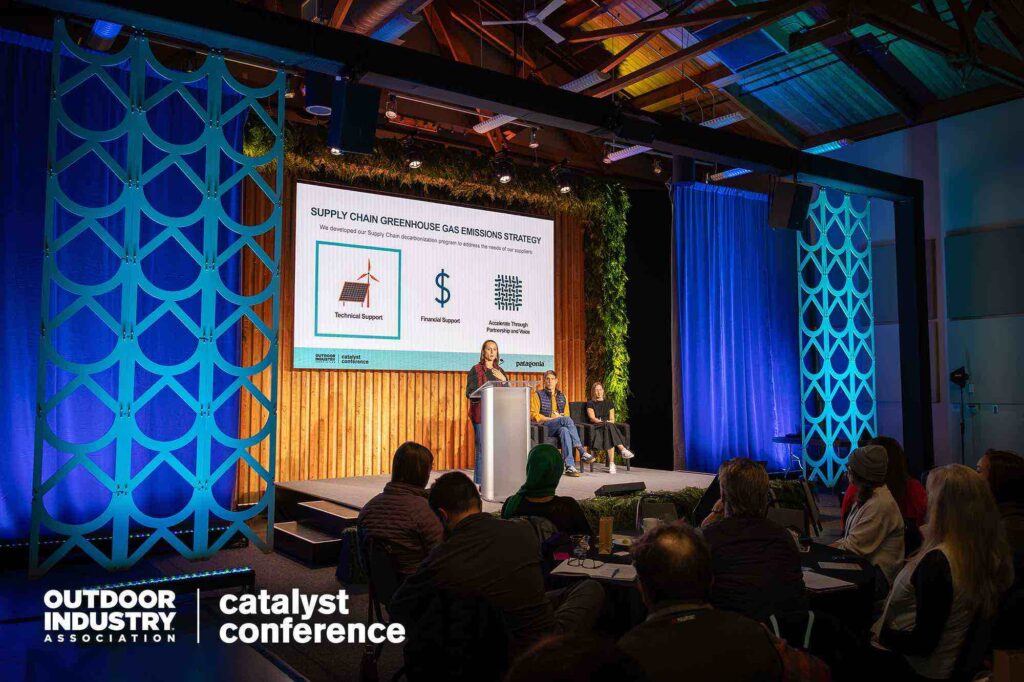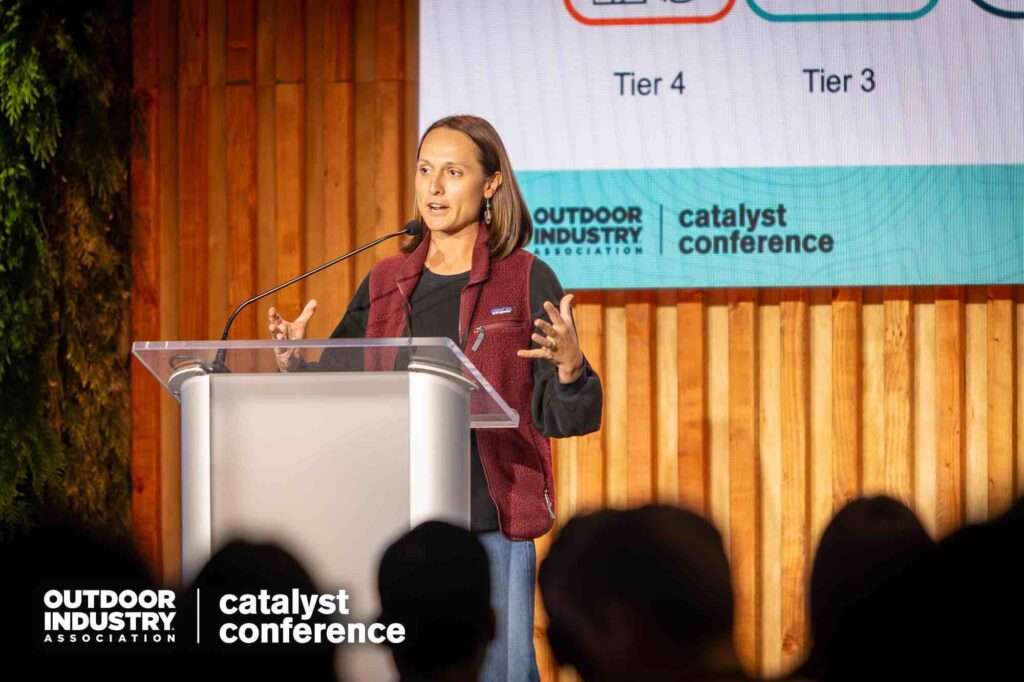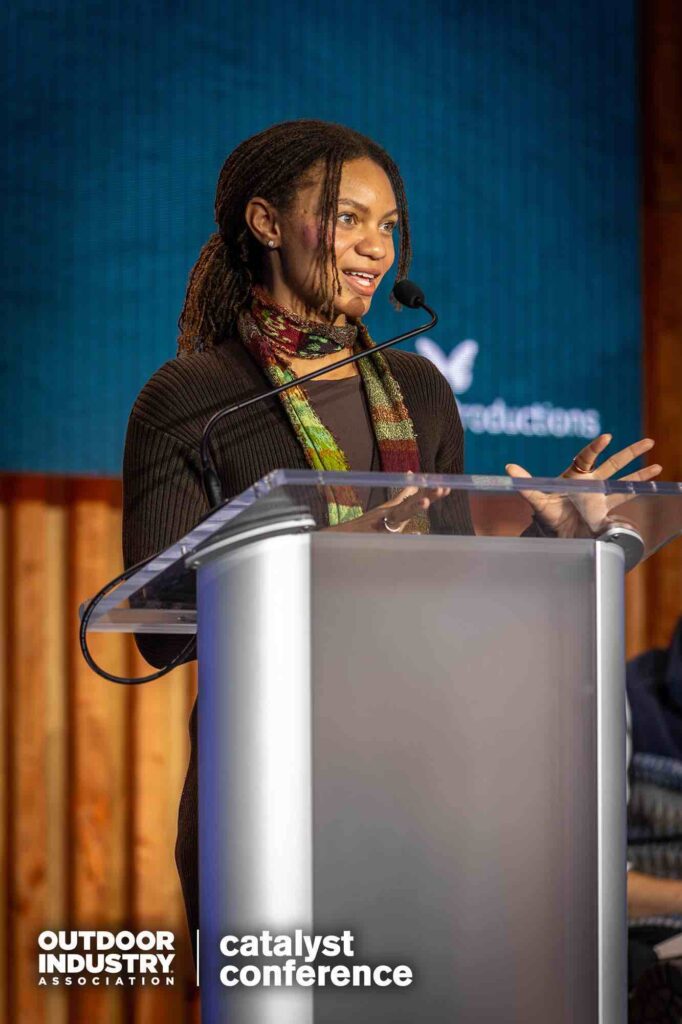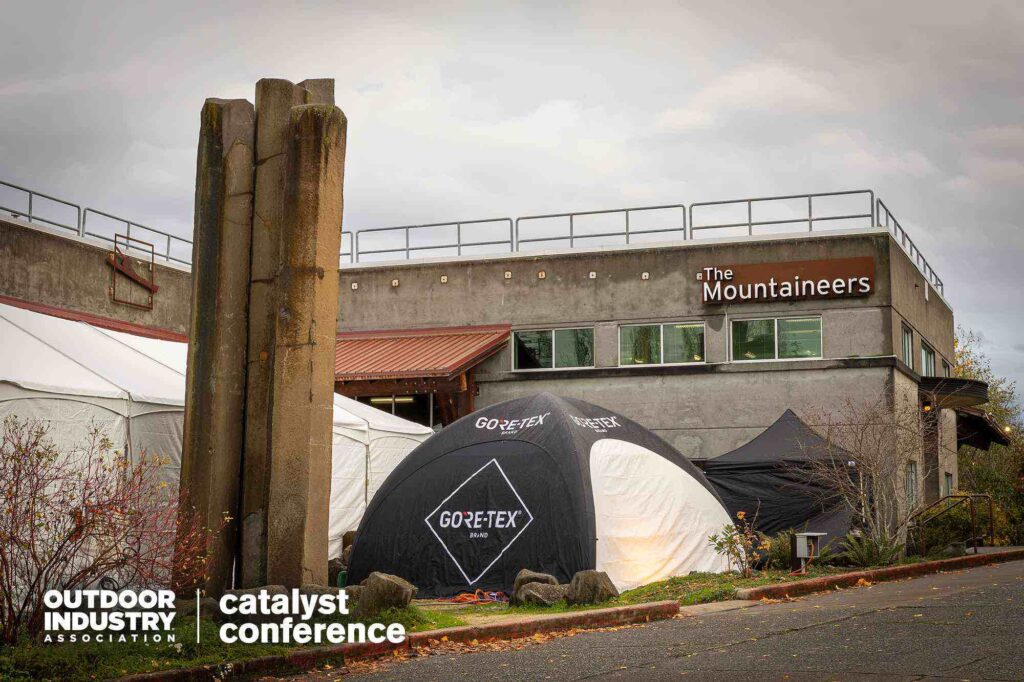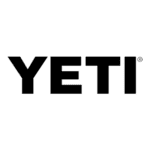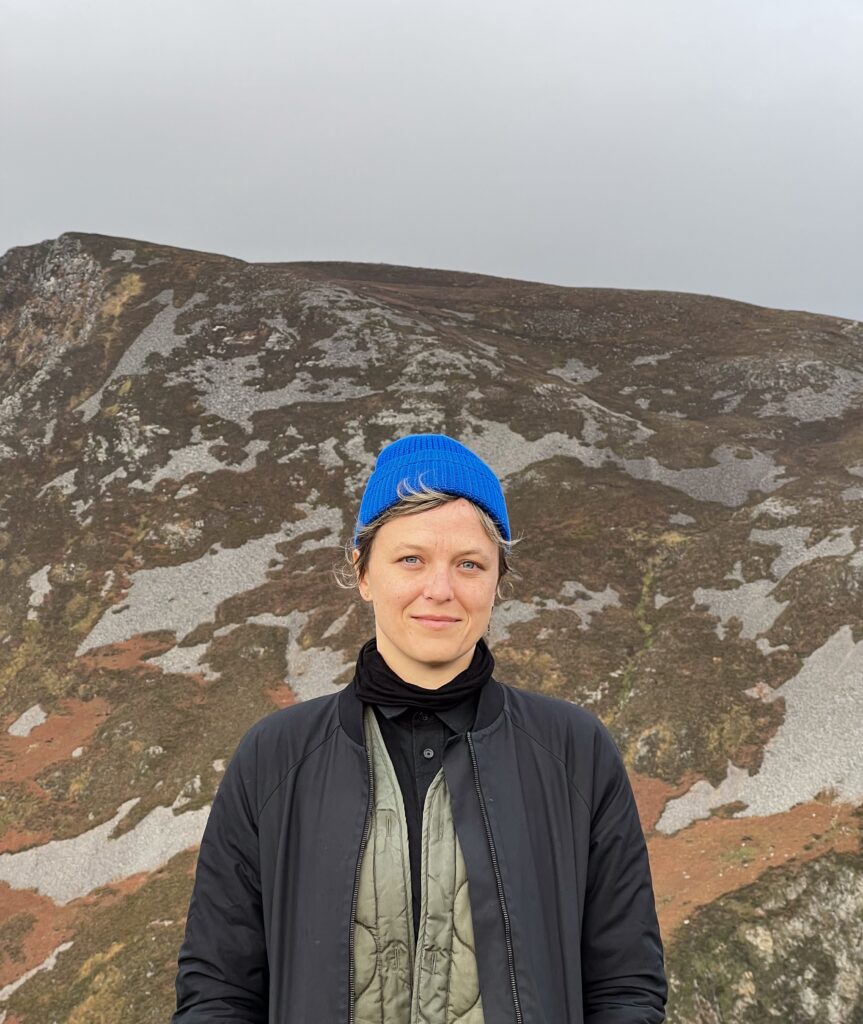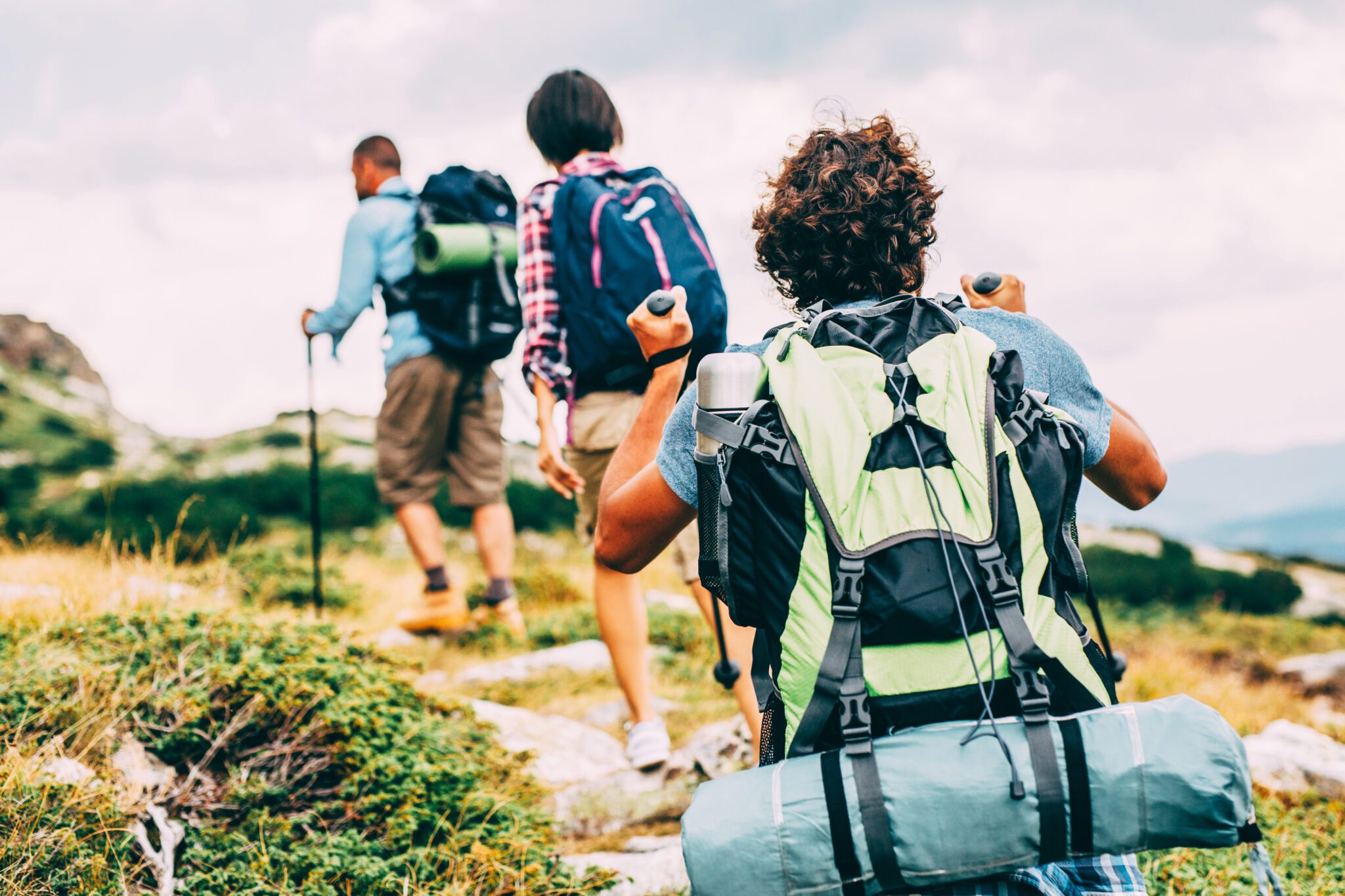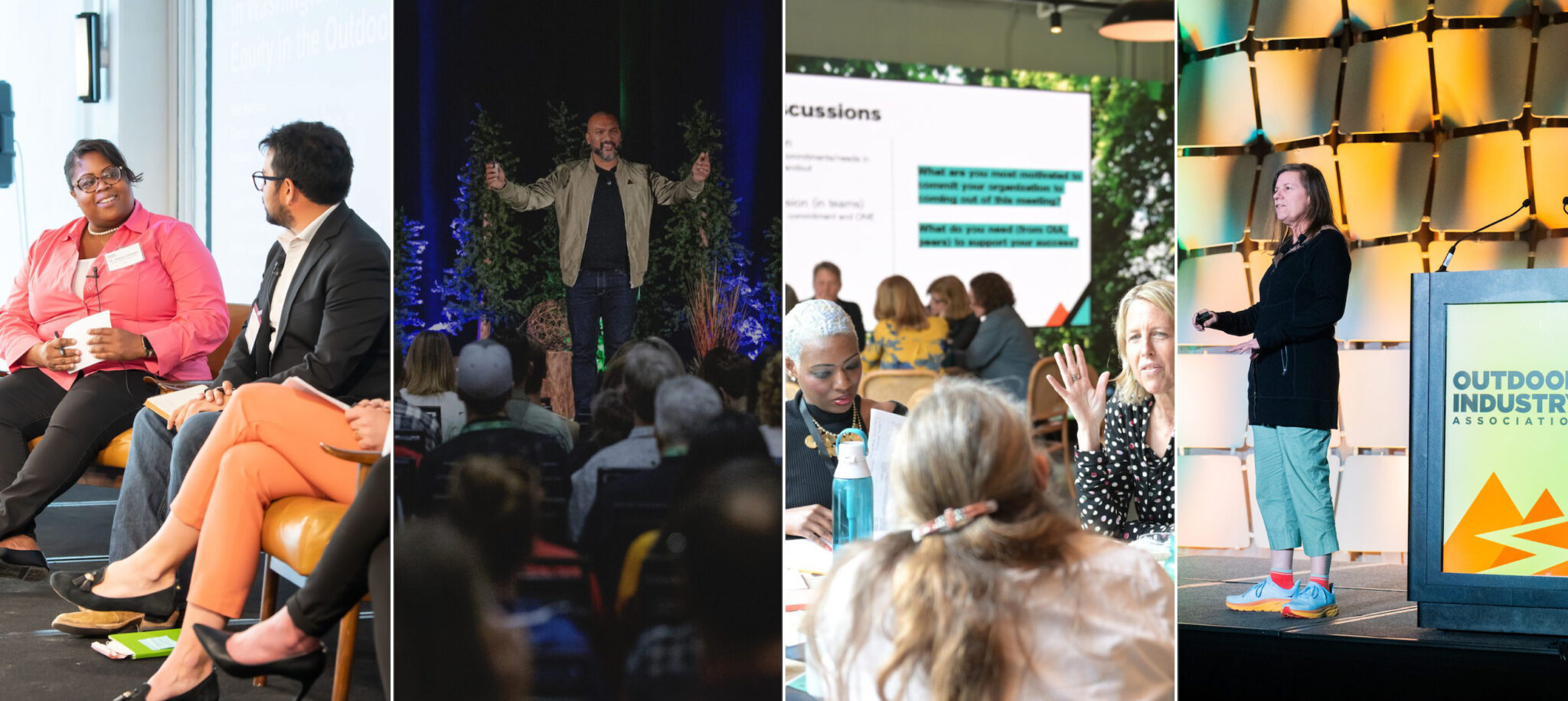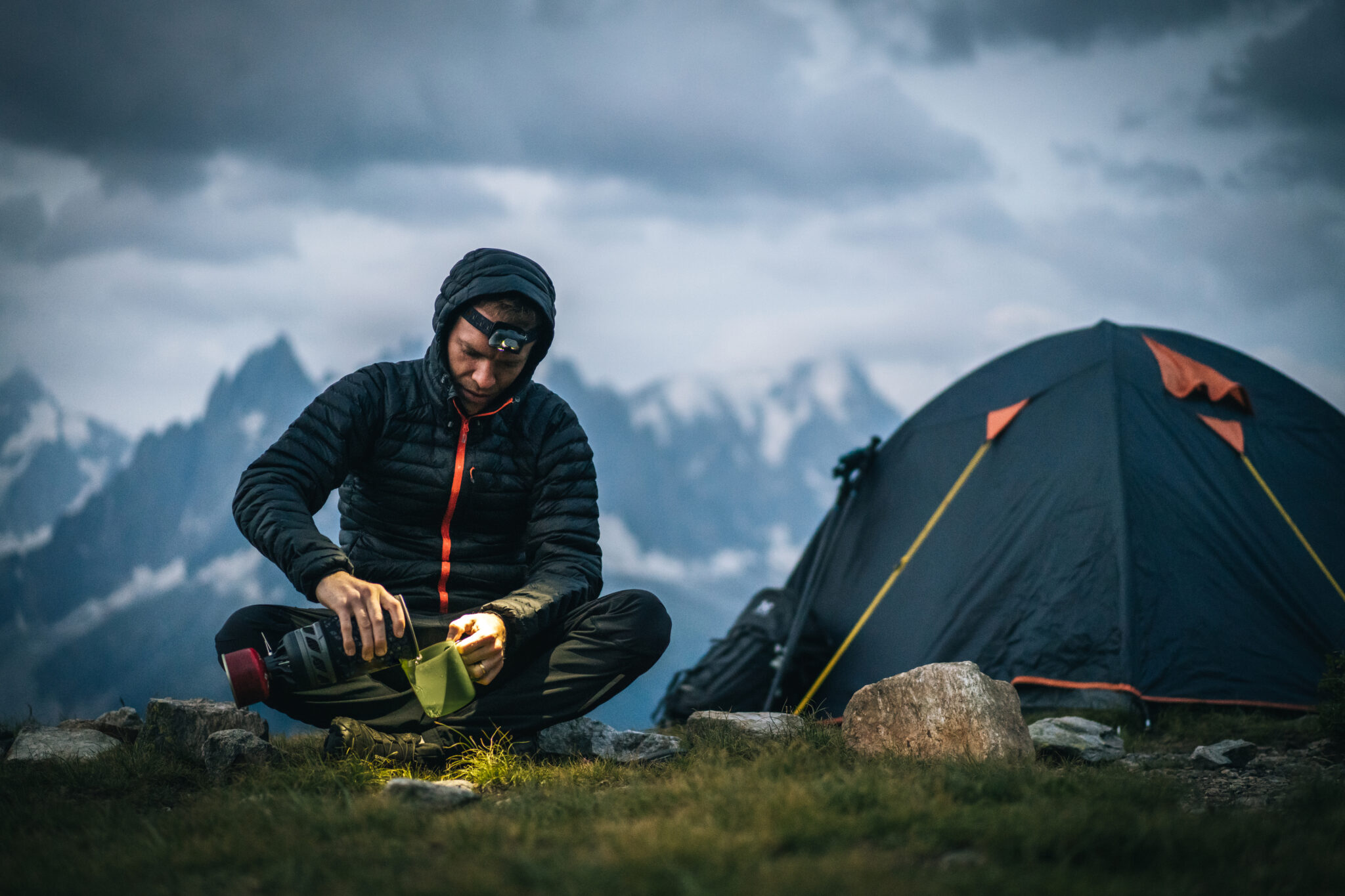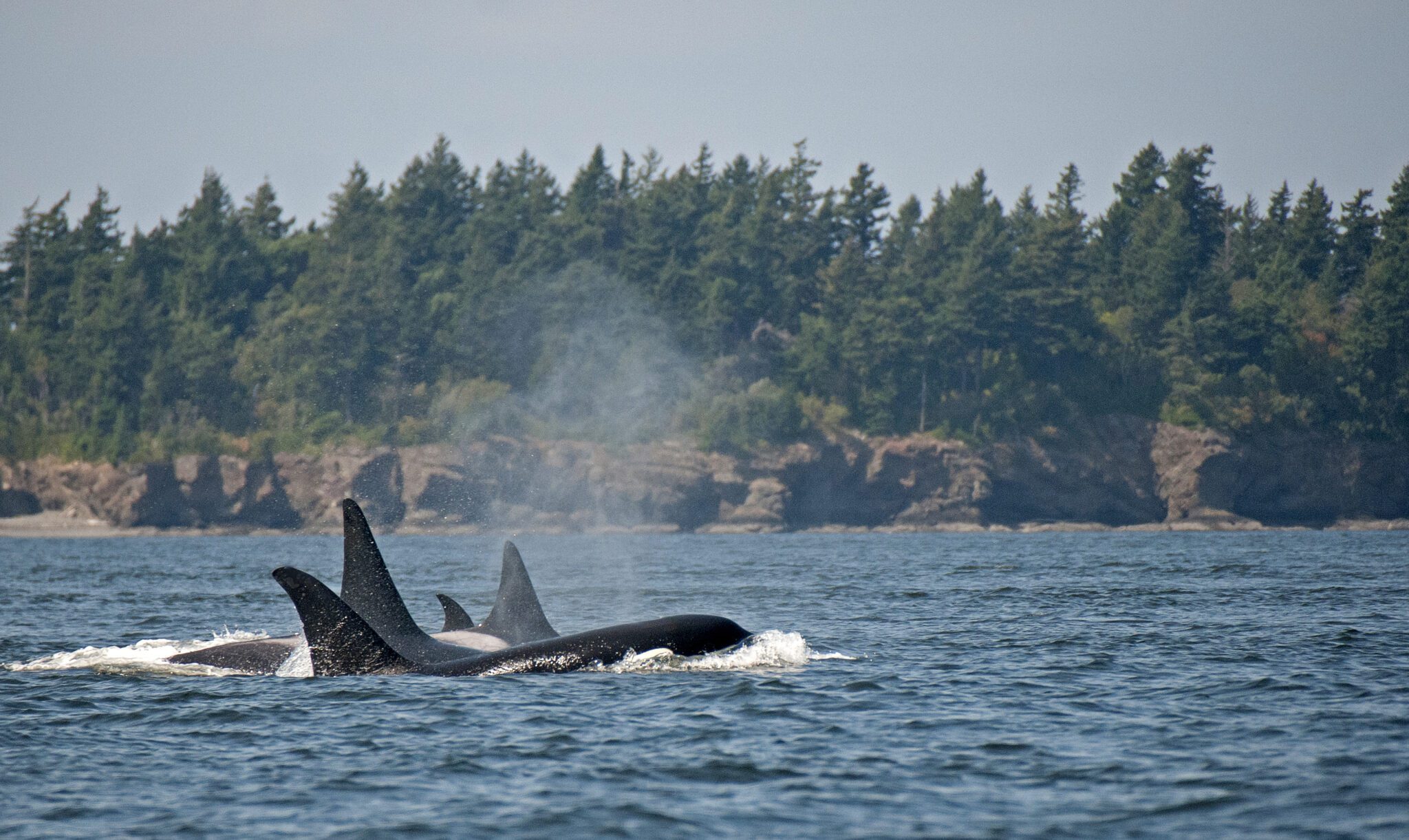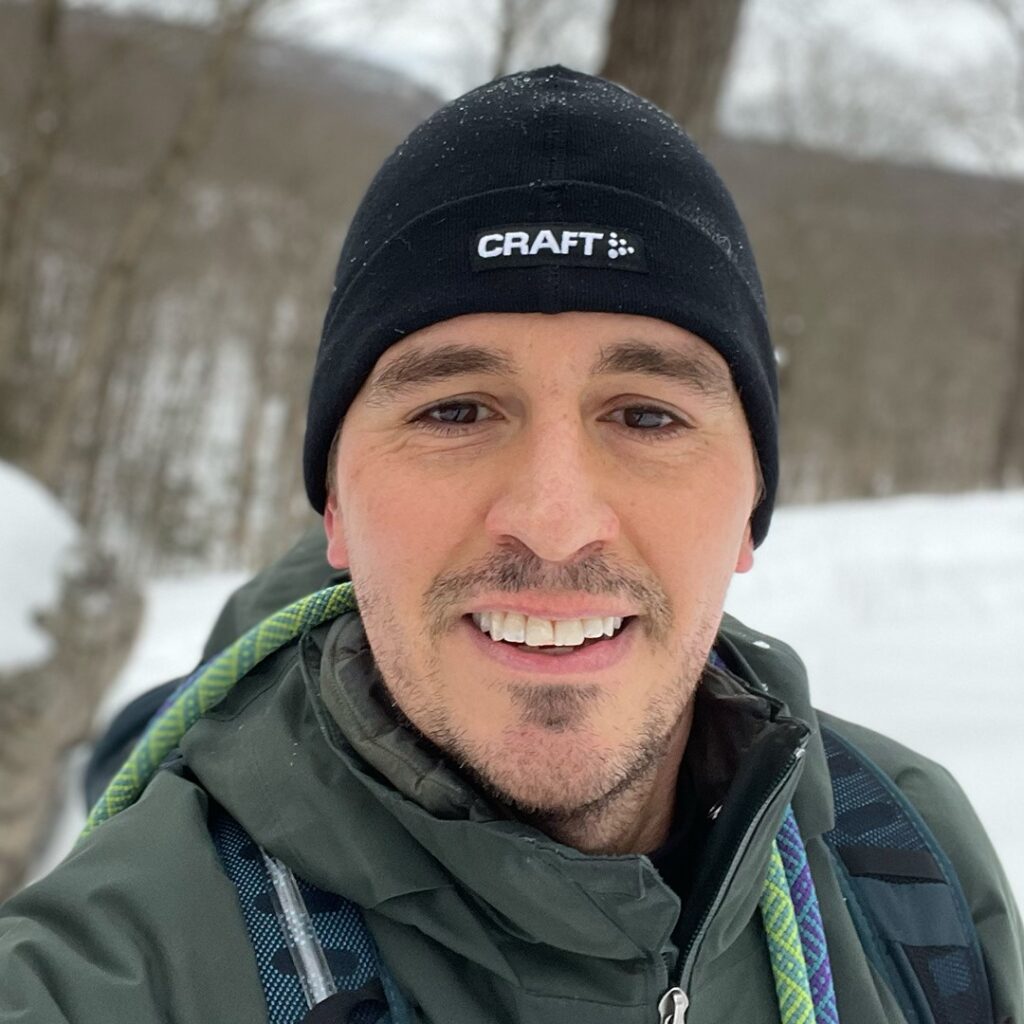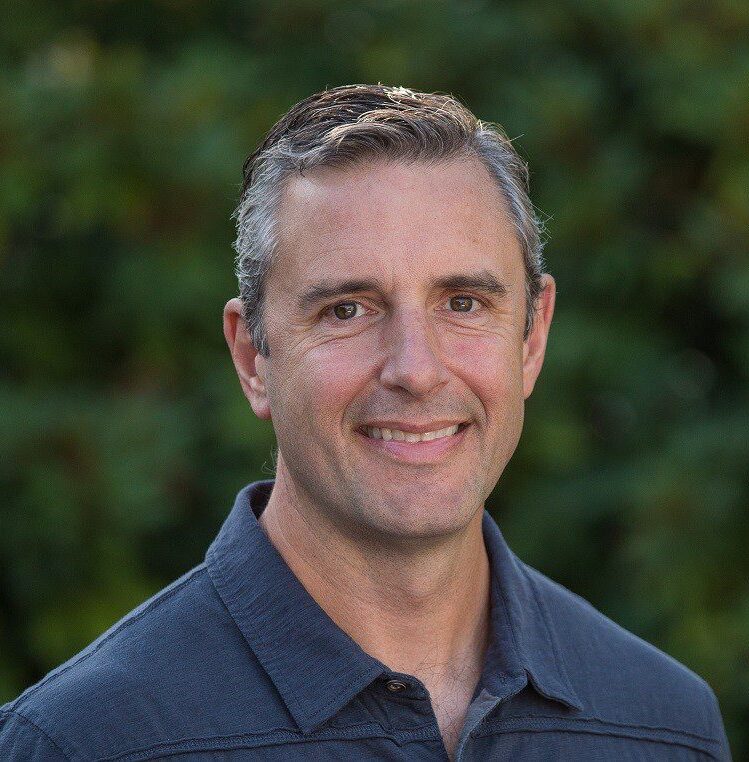By Meg Carney
The inaugural Catalyst Conference, hosted by the Outdoor Industry Association (OIA) from November 13-14, united outdoor industry leaders, innovators, and advocates to address sustainability challenges and strengthen their collective impact. Over two days, participants explored strategies to innovate, collaborate, and address pressing environmental issues impacting industry businesses and participants.
Julie Brown, Director of Sustainable Business Innovation at OIA, opened the event with a powerful call to action: “The outdoor industry is uniquely positioned to lead the charge for sustainable change. And so we must ask ourselves if not us, then who?”
Within the last five or more years, the outdoor industry has seen a value shift. While we’ve always been an industry loudly championing environmental conservation, we often grappled with the fact that we cannot sell more and reduce our impact at the same time. During the Catalyst Conference, industry leaders from brands like Patagonia, W.L. Gore & Associates, REI, Outdoor Research, and more shared their optimism and ideas as we move into a new generation of product production centered around sustainability and climate action.
As the outdoor sector navigates shifting political landscapes, tightening regulations, and increasingly eco-conscious consumers, its leaders emphasize one unifying truth: the industry’s strength lies in its ability to innovate, collaborate, and act with integrity.
Challenges and Opportunities in Sustainability
During the conference, participants tackled conversations regarding timely sustainability challenges. Presentations and panel discussions centered around topics such as climate change, global supply chain complexities, and evolving consumer demands.
Eric Artz, CEO of REI Co-op, highlighted the need for resilience and adaptability. “There’s always opportunity, but it requires us to think differently and engage differently than we have in the past,” he stated.
Even now, as an industry, thinking differently and engaging with the environment needs to look different. One clear issue we all face is the existential threat of the climate crisis, but while sustainability leaders push for new innovations, financial backing and the business of profit don’t always support or at the very least, push back, providing consistent challenges to our progress as an industry.
Artz also pointed to the growing importance of state and local action, citing the success of recent ballot measures addressing public lands and climate policies. “Given the choice and education, consumers want to make the better choice,” he added, emphasizing the power of informed decision-making.
Consumers now more than ever expect more from companies, and it has become increasingly obvious that consumers in the outdoor sector look to brands to be transparent and truthful. Not only that, but to take accountability for their shortcomings and the impact they have, whether positive or negative.
Panelists like Jacqueline Levy of OIA encouraged businesses to engage policymakers at all levels, underscoring the need for outdoor companies to serve as advocates and connectors to drive systemic change.
Industry Innovations and Collaboration
Throughout the Catalyst Conference, speakers showcased their individual and collective advancement in pushing the boundaries of sustainability. Artz described REI’s use of bioengineered yarns as an example of progress. “One of the most innovative things we do is open source and collaborate on everything,” he said, reinforcing the importance of collective effort.
Collaboration was a primary theme of conference panel discussions and is something the outdoor industry has done well for some time. Brands like REI have immense power and influence within the industry as a whole, and within their collaborative pursuits can create frameworks for others to follow.
Kelly Hughes of Ruffwear detailed how product redesigns are reducing emissions. By leveraging tools like the Higg Index, Ruffwear identifies opportunities to optimize material usage, streamline production, and ensure that new designs outperform older ones in sustainability metrics.
Efforts like redesigns are an essential part of reducing our impact and carbon footprint, but is it enough? At the end of the day, all of these brands have one common goal: to sell more products. The actual production and energy consumption required to do this are immense and often reflect the largest percentage of their carbon emissions.
To combat this impact, Ryan Kelly of W.L. Gore & Associates highlighted the company’s renewable energy projects, such as “Kentucky Fried Solar,” which are transforming manufacturing operations. Meanwhile, Stanley demonstrated how collaborative efforts through OIA’s drinkware initiative are helping suppliers decarbonize while driving industry-wide change.
All of these initiatives are a step in the right direction, but are part of a much-needed bigger strategy that reflects a broader trend: sustainability can no longer be an optional add-on but must be a core business principle. As Ashley LaPorte of Burton Snowboards explained, “We can’t be profitable on a failing planet.”
Leadership Perspectives
For many of these initiatives to be successful, sustainability must be central to organizational strategies.
Artz advocated for companies to tie their efforts to measurable business outcomes. “Ensure that your purpose is centered on your principles. Sustainability can’t just be a feel-good initiative; [there] has to be a business case,” he emphasized.
Something that stuck with me the most from all of the discussions was the idea that everyone on the sustainability team should have a friend in the finance department. Decarbonization is a huge challenge that ours and many industries struggle to achieve, and a big part of the delay is the lack of funding to make these changes. If, as an industry, we are claiming to lead the charge in sustainability, we need to, in a sense, put our money where our mouth is, and invest in carbon reduction efforts more aggressively.
With issues as large as climate change, it can be hard to put into perspective until climate disasters meet us at our front doors. In many instances, those impacted the most by climate change and environmental harm have a socioeconomic disadvantage and are overlooked throughout the product development process.
Leah Thomas, founder of Intersectional Environmentalist, introduced the “curb cut theory” to illustrate how designing solutions for society’s most vulnerable benefits the collective in the long run. “Start with environmental justice because it ends up benefiting everyone,” she explained, encouraging companies to align their efforts with community needs.
As an industry, we can and should also support employees most affected by climate impacts, according to LaPorte, who suggests resilience funds and stronger community-focused initiatives. “Employers are trusted more than the government to do the right thing,” she noted, referencing the Edelman Trust Barometer to highlight businesses’ unique position of influence.
Building a Sustainable Future
The path forward requires systemic change and coalition building, a theme many speakers echo. Levy reminded attendees of the industry’s significant economic influence. “This is a $1.1 trillion bipartisan powerhouse that can get things done,” she said. This sentiment highlights how companies can use their collective strength to drive policy change.
Ashley LaPorte of Burton Snowboards and Troy Sicotte of Mountain Hardware called for businesses to align sustainability goals with financial targets. They emphasized the importance of anticipating challenges and preparing for stricter regulations on emissions, toxic substances, and materials even before regulations push them to do so.
If the rapid phase-out of PFAS taught the outdoor industry anything, it should be to act before being regulated to do so. We need to follow the science and be able to substantiate claims not only for marketing purposes but also for the integrity of our industry and the future of the planet.
Some speakers explored the importance of proactive approaches to regulatory compliance. Alex Lauver of Outdoor Research noted, “Stop being so reactive. There’s going to be more restrictions, so how can we prepare?” This shows the urgency for the industry to stay ahead of evolving requirements while maintaining its commitment to sustainability.
Community and Consumer Engagement
Consumers drive the market, and throughout the conference, many speakers highlighted the importance of consumers and communities in driving change. Artz reiterated the need for transparency in communicating with customers: “Every time we put choice in front of informed customers, they will make the better choice with us.”
But we should not rely solely on customers to make those decisions for us. Each brand has a distinct responsibility to learn and then inform to become better advocates and examples for their customers. If consumers are looking to brands as an authority on topics such as sustainability and climate change, it should not be them holding us accountable, but us setting a higher precedent and expectation of their consumption.
Our supply chain impacts are one way to do this, but another is to be more civically involved. Levy detailed strategies for engaging policymakers, including fly-ins, congressional briefings, and public education campaigns. These efforts build trust and amplify the industry’s voice in legislative spaces.
While we have a long way to go to meet our climate goals, a sense of optimism prevails as we reflect on the first and hopefully not the last Catalyst Conference. The panels, speakers, and discussions seemed to inspire participants to lead the outdoor industry—and the planet—toward a more sustainable future.
Still, this Catalyst Conference left one lingering thought in the closing remarks from Kevin Myette of Bluesign for industry leaders and advocates:
‘We get to choose where we are on this trail. Are there any crusaders amongst you? Are we at an end, or a beginning’? I’ll be curious to see how we can leverage collective equity and transform obstacles into opportunities, to ensure a thriving future for people, the planet, and the products that connect us.

Meg Carney is an outdoor and environmental journalist, author, executive producer, and podcast host specializing in outdoor product coverage, supply chain research, and investigative environmental and conservation journalism.





